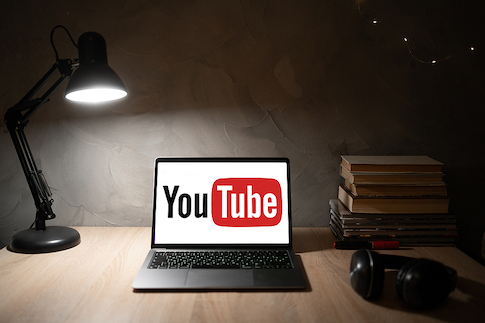 People who frequently watch YouTube have elevated levels of depression, anxiety and loneliness.
People who frequently watch YouTube have elevated levels of depression, anxiety and loneliness.
Researchers from the Australian Institute for Suicide Research and Prevention found that the most widely used streaming platform had both positive and negative impacts on the mental health of users.
“Loneliness is different from social isolation because the person is unhappy about it. Then they may also be socially anxious, seeking out YouTube to fill a gap in their lives. However, this can worsen symptoms in the absence of face-to-face experiences, especially for children and adolescents who benefit from this aspect of personal development,” Dr. Luke Balcombe, primary author of the study told Theravive.
“The main problem is the frequency of use, when it is above 2 hours a day then monitoring becomes useful; over 5 hours a day is extreme use and interventions may be necessary. Ultimately is the user experience happy or sad? How do we quantify and simplify these emotions in a useful way? We also determined that more needs to be done to prevent suicide-related content being recommended to users.”
The researchers found that the age group who was most likely to be impacted by the adverse effects from YouTube were below the age of 29. Those who were frequent users of YouTube or those who watched content related to the lives of others were also more likely to be impacted.
Balcombe argues that parasocial relationships between a YouTube creator and their audience can be problematic.
“Some of the pitfalls of a parasocial relationship include unrealistic expectations; parasocial relationship can lead to unrealistic expectations from the celebrity or influencer. Fans may expect a certain level of interaction or access that is not always feasible or sustainable. Disappointment; if a celebrity or influencer does not meet the expectations of their fans, it can result in disappointment and feelings of betrayal, leading to negative emotions and behaviors such as trolling or harassment,” he said.
“Parasocial relationships are often one-sided, with fans projecting their own desires and fantasies onto the celebrity or influencer. This can result in a lack of authenticity in the relationship and a distorted sense of reality. Loss of autonomy; fans may become so invested in their parasocial relationship that they lose sight of their own autonomy and identity. This can lead to a loss of personal boundaries and a lack of self-awareness. Stalking and harassment; in extreme cases, a parasocial relationship can lead to stalking and harassment of the celebrity or influencer, which can have serious legal and emotional consequences.”
The researchers note that virtual or parasocial relationships may be used by some people to compensate for a lack of real in person social interaction. This may especially be the case for those experiencing social anxiety.
But relying on parasocial relationships in this way may make the problems of a socially anxious person worse.
The research also found that more needs to be done to prevent content that is related to suicide being recommended to users.
“We looked what else is happening on a large scale, and found YouTube has some red flags to investigate in terms of potentially harmful suicide-related content finding a way through to users. As a result, we want to see mental health professionals involved in verification services for YouTube content,” Balcombe said.
“It’s important to understand how these rabbit holes formulate in terms of recommendations by algorithm. Although we acknowledge these recommendation algorithms are generally amazing resources, more needs to be known and done about how they are influencing negative mental health, especially in vulnerable populations such as young people.”
Balcombe says caregivers can play a role in ensuring young people interact with YouTube in a healthy way.
“Caregivers should monitor and moderate YouTube use, utilize parental controls and settings, and where there are indications of problematic use, it may help to seek mental health practitioner recommendations for appropriate content,” he said.
“Over 2 hours a day may indicate problematic use although 5 hours a day is reported as a severe threshold. Parental controls and guidelines can be searched online with functions available such as turning off the YouTube Kids search function, as well as reviewing and wiping the child or adolescent’s watch history. It is important to see problematic YouTube use for what it is and be inventive in solutions, without exacerbating issues. For example, it also can have protective effects so there needs to be careful consideration before making decisions on what to do, for example with caregiving.”
Elizabeth Pratt is a medical journalist and producer. Her work has appeared on Healthline, The Huffington Post, Fox News, The Australian Broadcasting Corporation, The Sydney Morning Herald, News.com.au, Escape, The Cusp and Skyscanner. You can read more of her articles here. Or learn more about Elizabeth and contact her via her LinkedIn and Twitter profiles.